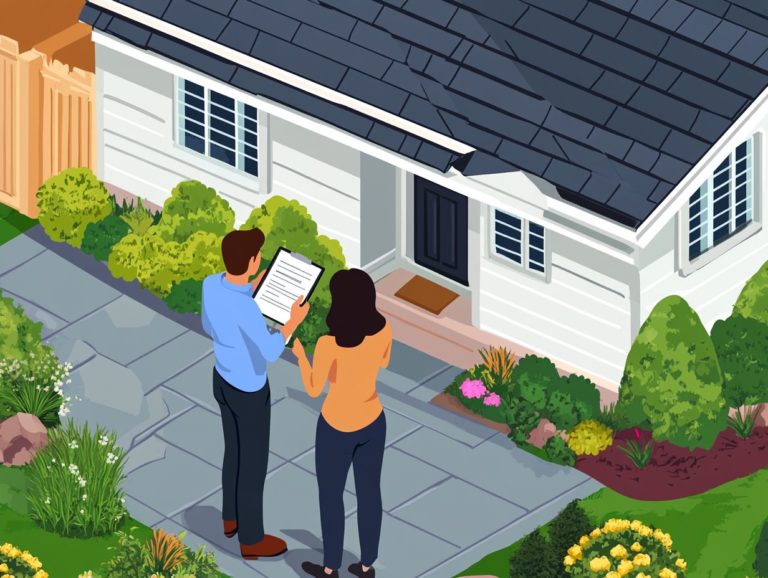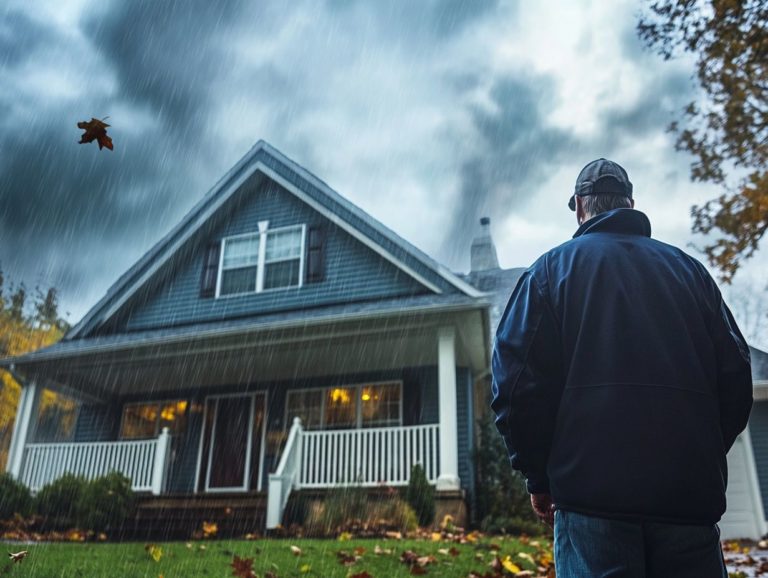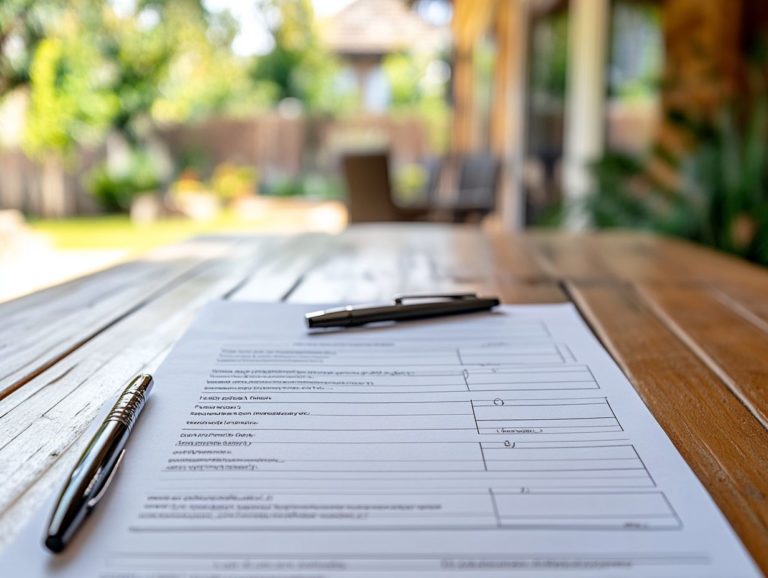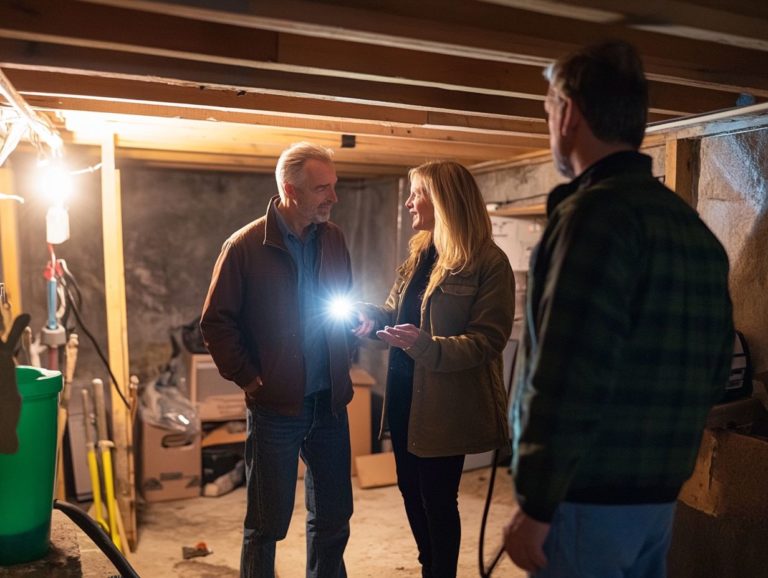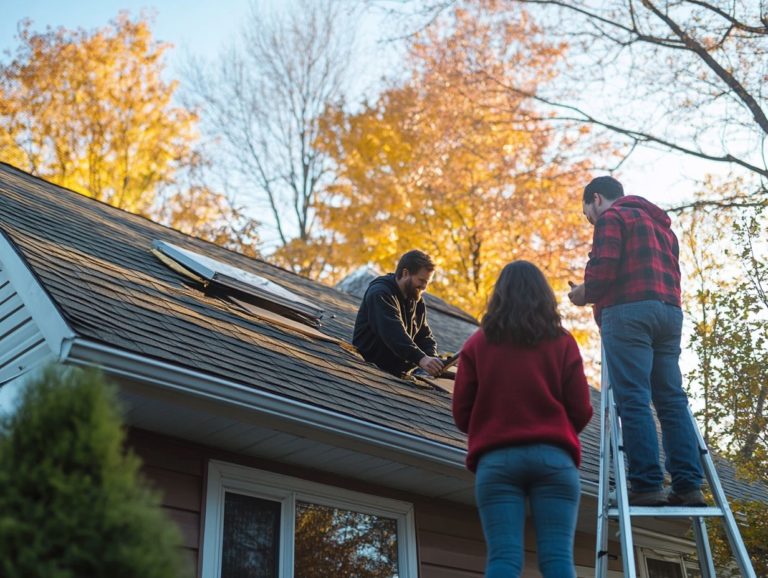Understanding the Home Inspection Process: A Guide
When it comes to buying or maintaining a home, a thorough inspection is not just a good idea it s essential. This guide will help you understand the significance of home inspections and why you should prioritize them as a homeowner.
You ll discover what to expect during the inspection process, key areas that are assessed, and common issues that might arise. You will also find out how to prepare for a seamless inspection and how to interpret the findings effectively, allowing you to make informed decisions.
Whether you re a first-time buyer or a seasoned homeowner, this resource equips you with the knowledge needed to navigate the home inspection process with confidence.
Contents
Key Takeaways:
Here are the essential points to remember about home inspections:
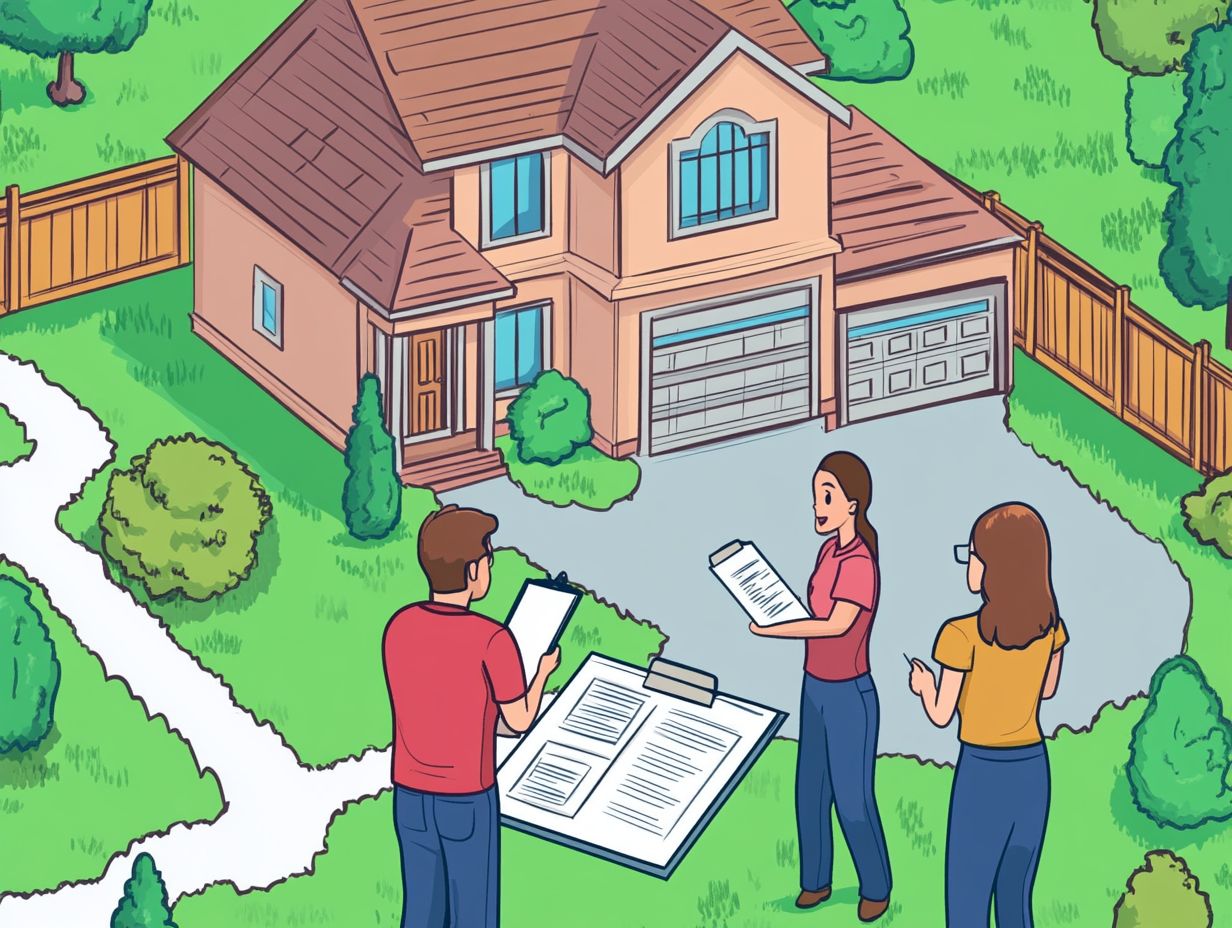
Home inspections are crucial for all homeowners to ensure the safety and functionality of their properties.
The home inspection process involves a thorough examination of the interior and exterior components of a home, helping to identify potential issues and red flags, which is crucial for understanding the importance of home inspections.
To prepare for a home inspection, homeowners should address known issues, declutter the home, and be present during the inspection to ask questions and understand the need for home inspections as outlined in the report.
The Importance of Home Inspections
Home inspections are an important step for home buyers. They provide a comprehensive guide that enlightens you about the home inspection process and aids you in making informed decisions about your potential new home.
Understanding the significance of a detailed evaluation can enhance your confidence in this substantial financial investment. With a reputable inspector’s expertise, you can assess the property’s structural integrity and ensure that you don’t overlook existing issues that could lead to future maintenance headaches.
Why Every Homeowner Should Get One
Every homeowner should prioritize investing in a home inspection. It’s crucial not only for protecting your investment but also for ensuring your property remains safe and structurally sound.
A thorough home inspection helps uncover hidden issues that might not be immediately visible, such as structural weaknesses or outdated electrical systems. This evaluation benefits everyone involved, as it highlights critical findings that can significantly impact property value.
As a buyer, you gain leverage during negotiations, equipped with evidence of any necessary repairs. As a seller, you can proactively address potential problems, boosting buyer confidence in the process.
A home warranty can also protect you against unexpected financial emergencies, offering peace of mind well beyond the sale’s conclusion.
What to Expect During a Home Inspection
A home inspection provides a detailed report that outlines the physical condition of the property. This ensures you are well-informed about the status of its major systems, including heating, ventilation, and air conditioning (HVAC), plumbing, and electrical.
Step-by-Step Breakdown of the Process
The home inspection process includes several essential steps, starting with hiring a qualified inspector and culminating in a detailed report about the property’s condition, as outlined in understanding the process of home inspections.
From the beginning, you can expect to work closely with the inspector to establish a timeline for the evaluation and discuss any specific concerns you may have.
During the inspection, the inspector will examine key components of the property systematically, such as the foundation, roof, plumbing, and electrical systems, ensuring that each area meets safety standards and regulations.
As the inspection unfolds, be ready to ask questions to gain valuable insights into potential issues or necessary repairs.
Once the inspection is complete, the inspector will provide you with a comprehensive report that lists findings and interprets them, revealing the property’s overall integrity. This enables you to make informed decisions about your investment.
Areas of the Home Inspected
During a home inspection, both the interior and exterior components of the property are examined with great care.
The inspection focuses on critical areas such as the foundation, roof, and attic to evaluate the home’s structural integrity.
Interior and Exterior Components
Inspectores realizan una evaluaci n exhaustiva de los componentes interiores y exteriores de una propiedad. Examina meticulosamente sistemas esenciales como la fontaner a y los sistemas el ctricos para garantizar que funcionen sin problemas. Esta evaluaci n es crucial, ya que no solo identifica problemas existentes, sino que tambi n ayuda a predecir preocupaciones potenciales futuras.
Por ejemplo, durante la inspecci n de fontaner a, verifican fugas, la presi n del agua y la eficiencia del drenaje. Estos factores son vitales para mantener un entorno de vida c modo y funcional. El sistema el ctrico es cuidadosamente revisado en busca de se ales de peligros, como el cableado obsoleto o la capacidad insuficiente de los circuitos.
Cada uno de estos elementos juega un papel fundamental en la seguridad y eficiencia general de una propiedad. Influyen significativamente en su valor y habitabilidad.
Common Issues Found During Home Inspections
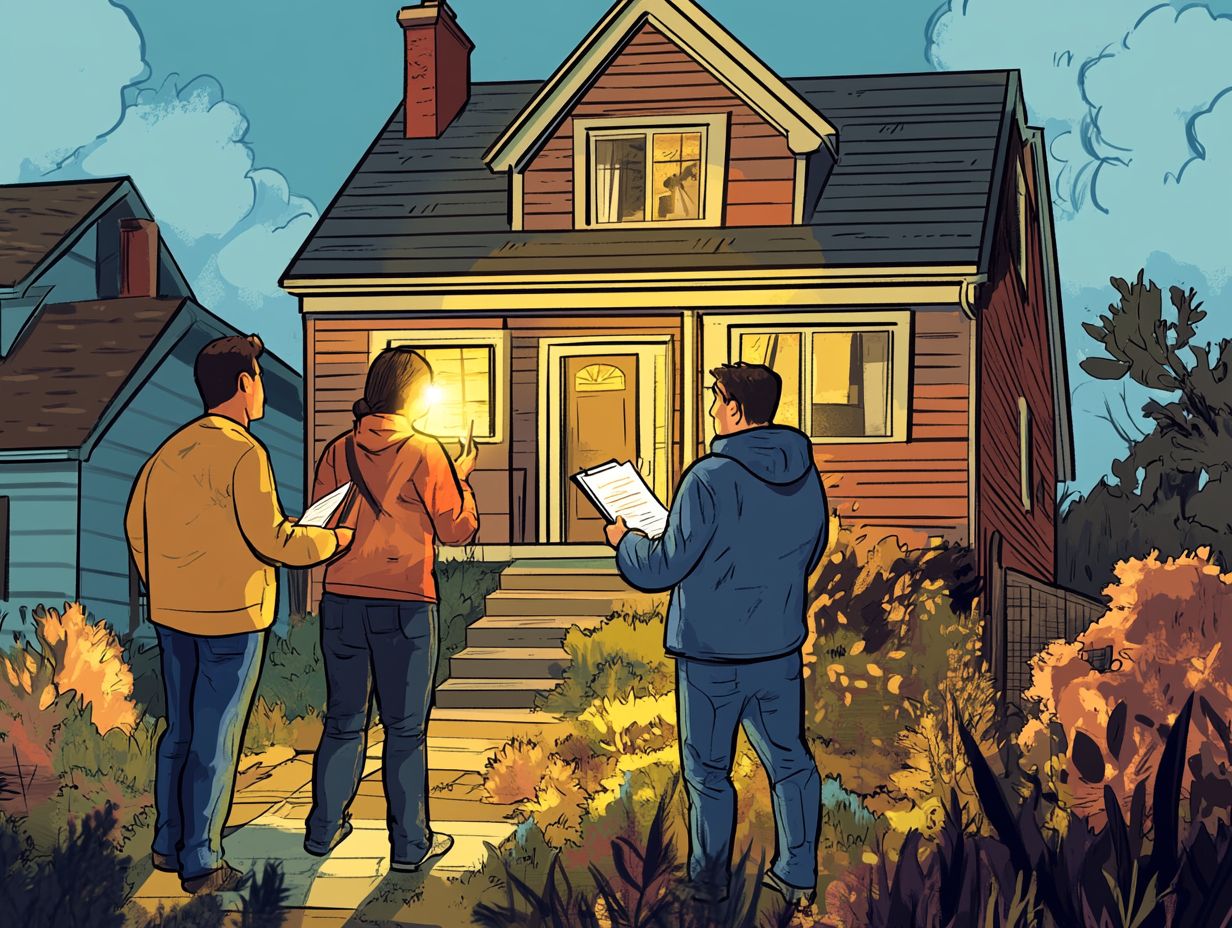
Las inspecciones de viviendas a menudo revelan problemas comunes que podr an presentar desaf os potenciales para los compradores.
Estas inspecciones destacan banderas rojas que pueden se alar problemas ocultos que necesitan atenci n inmediata.
Potential Problems and Red Flags
Los problemas potenciales y las banderas rojas descubiertas durante una inspecci n de vivienda pueden influir profundamente en tu decisi n como comprador. Presta atenci n a las preocupaciones de seguridad y a reparaciones costosas que podr an surgir.
Es crucial para ti, como futuro propietario, estar alerta a estos indicadores. A menudo apuntan a problemas ocultos dentro de la propiedad.
Por ejemplo, las se ales de da o por agua, como manchas en los techos o pisos deformados, pueden indicar fugas que comprometen la integridad estructural y pueden conducir al crecimiento de moho, lo que plantea riesgos para la salud.
Asimismo, los sistemas el ctricos desactualizados pueden introducir peligros significativos y posiblemente requerir una reconfiguraci n extensa.
Las grietas en los cimientos son otro aspecto que no debes pasar por alto. Pueden indicar problemas estructurales graves que podr an requerir costosa remediaci n. Al reconocer estas banderas rojas, puedes negociar reparaciones o incluso reconsiderar tu compra por completo, habilit ndote en el proceso de compra de vivienda.
How to Prepare for a Home Inspection
Prepararse para una inspecci n de vivienda es crucial para garantizar una experiencia fluida y exitosa. Para lograrlo, puedes seguir algunos consejos espec ficos que te ayudar n a sentirte listo y confiado.
Una estrategia efectiva es crear una lista de verificaci n detallada que describa todo lo que necesitas abordar antes de que llegue el inspector.
Tips for a Smooth and Successful Inspection
- Prepara una lista de verificaci n completa para la inspecci n.
- Aseg rate de que todas las reas de tu propiedad sean f cilmente accesibles. Esto significa despejar los caminos hacia lugares cr ticos como el tico y el s tano.
- Elimina cualquier desorden que pueda obstruir la vista del inspector.
- Mant n un registro de reparaciones y mejoras anteriores, ya que esto puede proporcionar un contexto invaluable sobre la condici n de tu hogar.
- Tener documentos importantes como garant as y registros de servicio listos ayudar al inspector a evaluar la longevidad y fiabilidad de los sistemas principales.
Adoptar un enfoque proactivo puede facilitar una evaluaci n completa y suavizar las negociaciones durante el proceso de venta. Comienza tu lista de verificaci n hoy para asegurarte de que no se pase por alto nada!
Interpreting the Home Inspection Report
Entender el informe de inspecci n de la vivienda es esencial para ti como comprador. Este documento presenta hallazgos cr ticos y recomendaciones que pueden influir significativamente en tus negociaciones y decisiones sobre la compra.
Understanding the Findings and Recommendations
Los hallazgos y recomendaciones en un informe de inspecci n de vivienda te ofrecen informaci n invaluable sobre la condici n de la propiedad y las reparaciones necesarias. Este informe crucial revela informaci n emocionante que podr a cambiar todo sobre tu compra.
Puedes analizar estos hallazgos para discernir qu reparaciones necesitan atenci n inmediata y cu les pueden esperar. Al evaluar la gravedad de cada recomendaci n en funci n de tu presupuesto y cronograma, puedes tomar decisiones informadas sobre c mo negociar reparaciones con el vendedor o ajustar tu precio de oferta en consecuencia.
Comprender las implicaciones de estos hallazgos te permite priorizar las renovaciones necesarias, mejorando tu inversi n y asegurando tranquilidad a lo largo de tu proceso de compra de vivienda.
Next Steps After the Home Inspection
After a home inspection, you should approach your next steps with careful consideration. This often involves understanding the home inspection timeline to negotiate repairs based on the inspection findings and ensure the sale process reaches its conclusion smoothly.
Negotiating Repairs and Finalizing the Sale
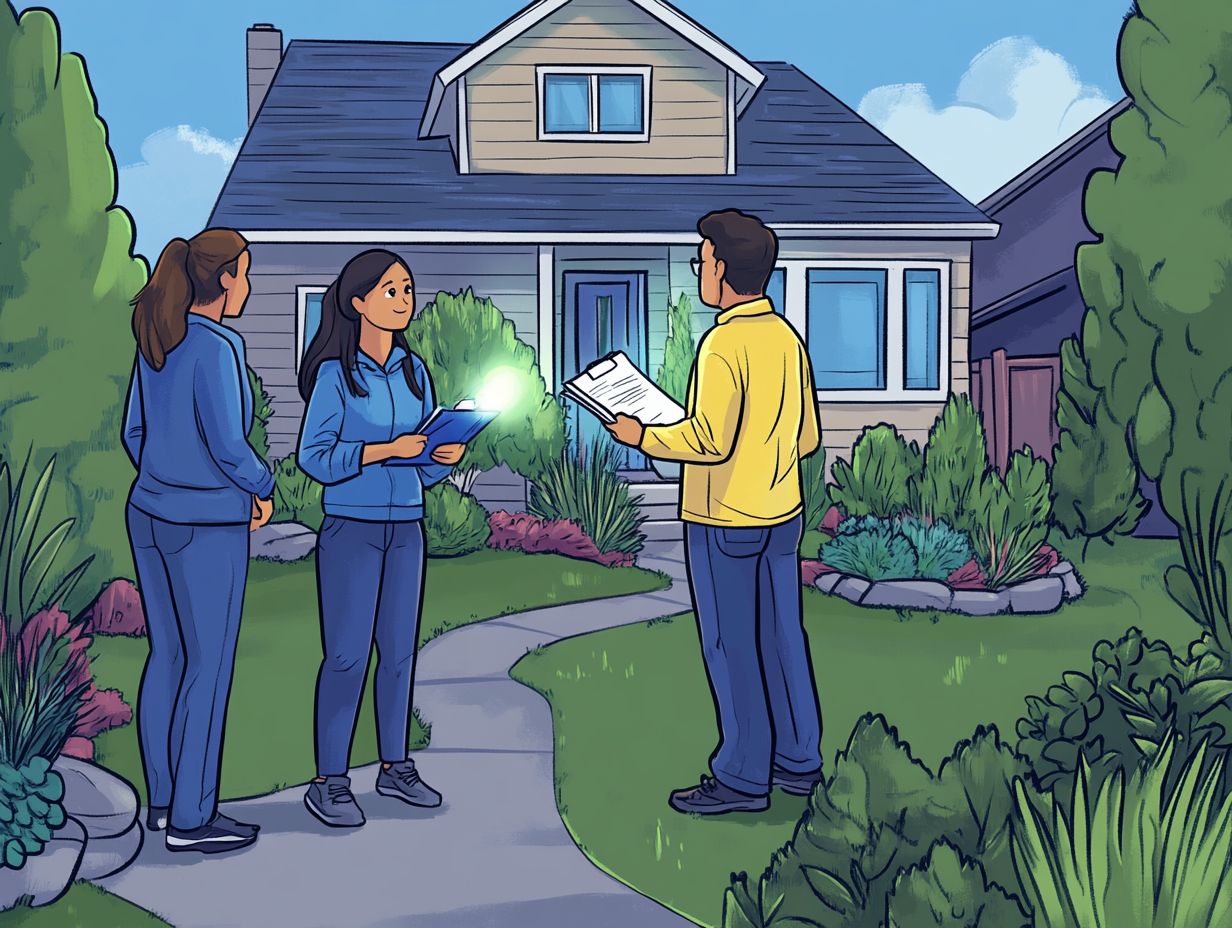
Negotiating repairs based on inspection findings is essential for finalizing your property purchase. It ensures that the seller addresses necessary repairs before closing.
This phase is crucial! It protects your investment and builds trust with the seller.
Using good negotiation skills can shape the outcome of your discussions. By focusing on critical concerns highlighted in the inspection report like structural issues or safety hazards you can present compelling reasons for the seller to commit to the necessary repairs.
Proposing alternative solutions, like offering a credit at closing, can create a win-win scenario, enhancing the final sale agreement and paving the way for a smoother transaction.
Frequently Asked Questions
What is the home inspection process?
The home inspection process is a thorough assessment of a property’s condition, typically conducted by a certified inspector. Understanding the home inspector’s role is crucial as it identifies potential issues or hazards that may affect the safety, value, or functionality of the home.
Why is a home inspection important?
A home inspection is important because it provides buyers with valuable information about the condition of the home they are considering purchasing. This can help them make an informed decision and potentially avoid costly surprises in the future.
Who typically pays for a home inspection?
In most cases, the buyer pays for the home inspection. However, the seller may choose to pay for the inspection to show good faith and transparency to potential buyers.
What does a home inspector look for?
A home inspector will typically look for potential issues or hazards in the structural, mechanical, and electrical systems of the home. This may include the foundation, roof, plumbing, electrical wiring, and more.
How long does the home inspection process take?
The duration of a home inspection can vary depending on the size and condition of the home. On average, it can take anywhere from 2-4 hours to complete.
What happens after a home inspection?
After a home inspection, the inspector will provide a detailed report of their findings to the buyer. Understanding the role of home inspectors can help the buyer use this information effectively to negotiate repairs or a lower price with the seller, or choose to walk away from the purchase if the issues are too significant.

